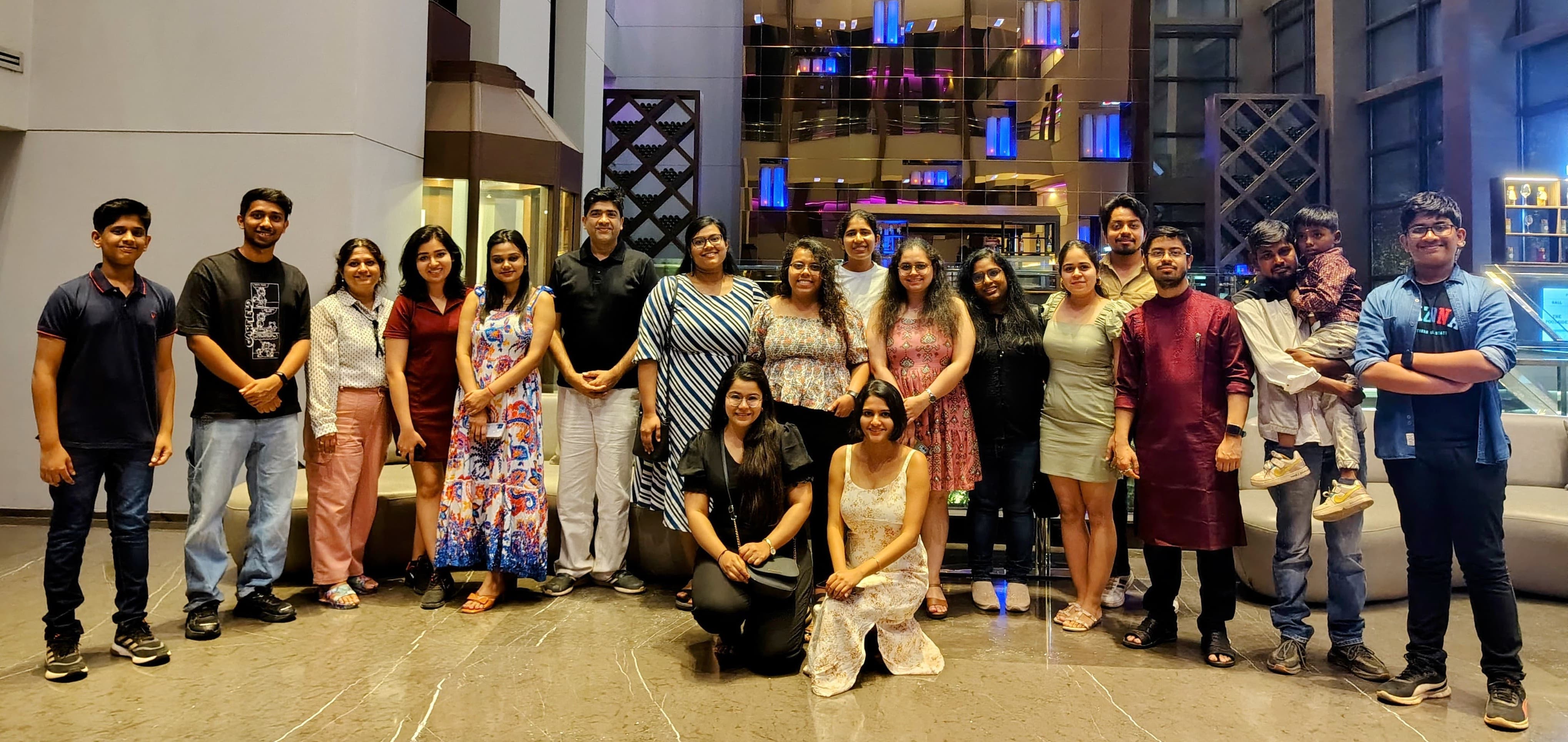When the nucleus panics, the cytoplasm responds – drop by drop

Image courtesy: Gayatri Mohanan and PIR Lab members
Cells are constantly exposed to harmful conditions such as radiation or chemicals that damage the DNA in their nucleus. To survive, cells need to repair this damage quickly and accurately.
In a recent study led by Purusharth Rajyaguru, researchers in the Department of Biochemistry, IISc and collaborators have discovered that fascinating RNA-protein complexes (referred to as RNP condensates) that punctate the cytoplasm like beacons play a key role in helping cells repair the damaged DNA.
The team treated baker’s yeast with hydroxyurea (HU), an anti-cancer drug that causes DNA damage. They found that this treatment induces communication between the nucleus and cytoplasmic RNP condensates. This communication is mediated via an RNA-binding protein called Scd6. It binds the mRNA encoding an important DNA unwinding damage repair protein Srs2, to clamp down on its protein synthesis.
Interestingly, this interaction occurs in cytoplasmic RNP condensates, which are implicated in determining the timing of protein synthesis. A mutant of Scd6 that fails to reach the RNP condensates also fails to exert control on Srs2 protein production and affects DNA damage repair.
HU is a drug used to treat cancer patients. The team, therefore, also decided to check if the observations were valid in human cells. LSM14 (the closest relative of Scd6 in humans) responded to HU treatment by communicating with RNP condensates. It affected the synthesis of RTEL1 protein, which is the closest relative of Srs2 in humans, in same manner as Scd6 did in baker’s yeast, to manage DNA damage repair.
Overall, the findings highlight how the tiny droplets in cytoplasm (RNP condensates) help cells respond to DNA damage in the nucleus. The study has implications for the role of RNP condensates in cancer chemotherapy, which the team is currently pursuing.

Photo courtesy: Gayatri Mohanan and PIR Lab members
REFERENCE:
Mohanan G, Roy R, Malka-Mahieu H, Lamba S, Fabbri L, Kalia S, Biswas A, Martineau S, Labbe CM, Vagner S, Rajyaguru P, Genotoxic stress triggers Scd6-dependent regulation of translation to modulate the DNA damage response, EMBO Reports (2025). https://www.embopress.org/doi/full/10.1038/s44319-025-00443-3
LAB WEBSITE: https://rajgodhuli.wixsite.com/rajyaguru-lab





